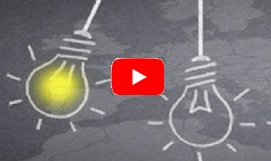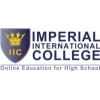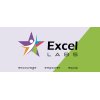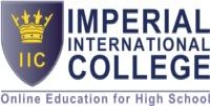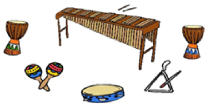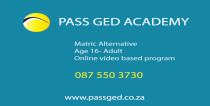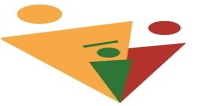What party should homeschoolers support?
Elections for local government will be on the 3rd of August. Homeschooling parents might wonder which political party will be the best for home education.
The education policies of the different parties can be divided in three groups (a more detailed analysis is provided at the end of the article):
- Parties that view education as the sole responsibility of the state and should be provided for free. This is the policy of the ANC, EFF, National Freedom Party and UDM.
- Parties that view education as the primary responsibility of the state, but other stakeholders such as parents, independent schools, communities and employers should also be involved. This is the policy of the DA, ACDP, IFP and COPE.
- From the information available on their website, it was not possible to evaluate the position of the VF+, since their manifesto does not mention private education or home education.
Parties in group 2 acknowledge that parents should be involved in education to a limited extent. Some of those also acknowledge the existence of home education, but only under state control (DA, ACDP). Although the policies of these parties are slightly more favourable towards home education, the actions of these parties are sometimes less favourable towards homeschooling. For example, the DA controlled Western Cape government is known for their attempts to infringe on the rights of parents to choose the type of education of their children.
Homeschoolers can take two approaches to this situation:
- Vote for the lesser of two evils, for example a political party in group 2.
- Vote for a minority party in order to reduce the power of the majority parties.
Although political parties do not acknowledge the role of parents, the law fortunately does. According to the South African constitution, every child has the right to parental care. According to the Childrens Act of 2010, this parental care includes “guiding, directing and securing the child’s education and upbringing, including religious and cultural education and upbringing, in a manner appropriate to the child’s age, maturity and stage of development;”. It is therefore more important to support a legal defence fund than a political party.

ACDP - Education Policy (as on 6 June 2016)
The ACDP does mention homeschooling, but it should be controlled by the state by means of the licensing of curricula.
“The ACDP will encourage parental involvement in all education and promote alternative education such as:
- Home schooling;
- Private Christian Schooling and
- Other cultural schooling,
within recognised and licenced curricula.”
It does however have a high regard for parental involvement in education : “Parental involvement must also be encouraged and promoted in State schools as this allows for improved student academic achievement, attendance, student behaviour and increased community support for schools, including human, financial and material resources. Parental involvement under the ACDP will be encouraged by training teachers and headmasters in community cohesion.”
ANC - Strategy and Tactics of the ANC (as on June 2016)
Neither the 2016 Local Government Manifesto nor the 2014 ANC National Election Manifesto makes any references to parents, private education or home education.
The Strategy and Tactics document of 2012 does however mention the institution of the family a number of times. “There also should be deliberate collective action to promote a positive role by the institution of the family.”
The ANC views education as service that must be provided for free by the state. “A national democratic society should use the redistributive mechanism of the fiscus to provide a safety net for the poor. As such, built into its social policy should be a comprehensive social security system which includes various elements of the social wage such as social grants, free basic services, free education, free health care, subsidised public transport and basic accommodation.”
The ANC also views education as a means to transfer it’s value to the next generation : “We will work with all sectors of society to promote an overarching South African identity, recognising the diversity of the country’s people. We will promote pride in our heritage including geographic and place names, our African identity and our common humanity as global citizens. In this regard, we shall ensure that the content of the education system encourages the inculcation of these values while at the same time promoting critical thought.”
COPE – Education Policy (as June 2016)
The COPE policy focuses mainly on increasing the monitoring and managing the existing education system in order to improve results. It does however acknowledge private education : “ As independent schools have a right to exist under the constitution, support to such schools will continue. COPE would like private schools which are better resourced to contribute to education by sharing resources.”
DA - Learning for Success - DA Policy on Basic Education - December 2013 (as on 6 June 2016)
“The DA believes that it must be the first priority of government to make quality public schooling available to all South Africans. In addition, we believe that it is possible to create a legislative and policy framework that allows for alternative models. This could include providing public funding to private organisations delivering quality schooling outside of the public education system, whilst maintaining public accountability. This could include models such as (i) the Charter school model used in Washington and Boston in the United States, where non government-run public schools can operate on the basis of charters determining service level and performance commitments, (ii) partnerships between the department of education and private entities -a model currently being promoted in India as a means of broadening access to quality education, or (iii) appropriately supported home schooling.”
The first priority of the DA is public schools, but it does believe that there is room for private schools. However, such private schools should be subsidised and controlled by the state : “All schools must be obliged to provide detailed financial and management information to provincial education department, …”. It also believes that homeschoolers should be supported, and therefore controlled by the state.
There are 27 references to parents in their policy, and in the conclusion the policy it states : “…Empowering parents to seek the best possible educational opportunities for their children.”
EFF – Policy on Education, Health, House and Sanitation (as on 6 June 2016)
In essence there is no difference between the education policy of the ANC and the EFF. The EFF also promote state provided free education.
IFP – Education Policy (as on 6 June 2016)
The IFP views education that should be provided by the state together with communities and employers, but controlled by state regulations. “The state must not be the sole provider of education – at any level. Education is an extension of the social and training function of the family, therefore parents and communities must be the primary custodians of the education system. The state, parents, communities and employers should assume joint responsibility for education. … All schools and colleges should be regulated in terms of provincial legislation. The role of the national Department of Education should be to monitor compliance with essential norms and standards.”
National Freedom Party – National Election Manifesto 2014 (as June 2016)
No difference from ANC : “Free, compulsory and high quality Basic Education for all children up to the age of 18 years; … Develop and introduce a foundation phase to precede Grade R which will be regulated by the department of Basic Education, … The basic education curriculum to be biased towards maths and science to ensure that learners are better suited to enrol for higher education after completing grade 12.”
UDM – Education Policy (as June 2016)
The same as ANC : “In this regard the UDM supports free public education from primary school until Grade 12.”
VF+ : Verkiesingsmanifes 2014 (soos op 6 Junie 2016)
“Vir die VF Plus is gehalte onderwys in die skolier se moedertaal ononderhandelbaar. Stelselwye gehalte-onderwys hang van ’n nuwe onderwyskultuur af. Vakbonde met ’n afbrekende tradisie moet onder beheer gebring word. ’n Kultuur van harde werk, stygende standaarde en eerlikheid moet van die presidensie tot die mees afgeleë skool gekweek word.” Daar is geen verwysing na privaatonderwys of na tuisonderwys nie, en daar word niks gesê oor die betrokkenheid van ouers by die onderwys nie.
Comments
Events
Legal & Research
Homeschooling and the law
Home schooling was recognized in 1996 in Section 51 of the SA Schools
+ ViewCentres
Homeschool ABC
Support
Curriculums
Frequently Asked Questions
-
Do I need to be a qualified teacher?
No. Research has found no correlation between the qualification of the parent and the academic performance of the child. Research shows that...
-
Do home learners sometimes wish they were in school and were normal?
They generally like being homeschooled. Some homelearners go to school for the experience but many return to homeschooling as within the homeschool...
-
Is home education often used as a smoke screen to hide child neglect?
State interference in home education is often justified as something that can identify situations where home education is used as a smoke screen to...
-
What is home education or homeschooling?
Home education is the oldest form of education. The school system as we know it is actually fairly new. It is done under the guidance and the...
Has no content to show!



